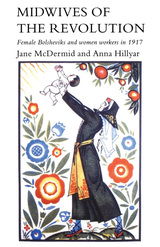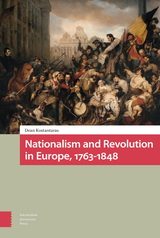Rewriting History and the Myth of the French Nation: The Hagiography of Radegund of Poitiers from Medieval to Modernity
Amsterdam University Press, 2025
Cloth: 978-90-485-5915-2 | eISBN: 978-90-485-7373-8 (ePub) | eISBN: 978-90-485-5916-9 (PDF)
See other books on: Modernity | Myth | Nationalism & Patriotism | Saints & Sainthood | Spencer-Hall, Alicia
See other titles from Amsterdam University Press
Cloth: 978-90-485-5915-2 | eISBN: 978-90-485-7373-8 (ePub) | eISBN: 978-90-485-5916-9 (PDF)
ABOUT THIS BOOK | AUTHOR BIOGRAPHY | TOC
ABOUT THIS BOOK
This multidisciplinary analysis of the cult of Radegund of Poitiers, from the sixth century to the twenty-first, illuminates the roles saints play at the intersection of gender and politics. No other medieval saint was so politically charged or had such an astonishing range of constructed personae. The many “Radegunds” encountered in this study – virgin, wife, mother, royalist, republican, colonizer – can all be interpreted as responses to contemporary political events, shifting spiritual trends, and changing attitudes towards women’s role in society or the Church. The long trajectory of Radegund’s meanings and functions over the centuries suggests that saints have played a more significant ideological role in state formation, nationalism, and identity politics than is typically recognized. To “rewrite” Radegund is thus to rewrite the history of the French nation, and this ground-breaking study shows how powerful medieval hagiography has been and continues to be in the emergence of nationalism and the “Myth of the French Nation.”
See other books on: Modernity | Myth | Nationalism & Patriotism | Saints & Sainthood | Spencer-Hall, Alicia
See other titles from Amsterdam University Press












